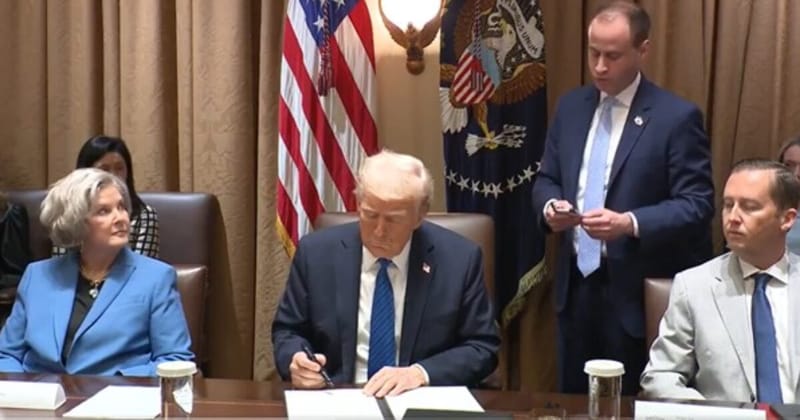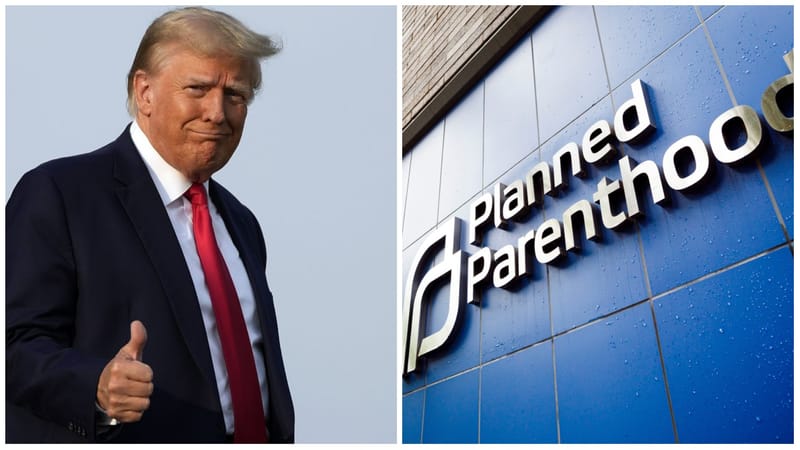Trump Administration Explores $5,000 ‘Baby Bonus’ to Boost U.S. Birth Rates
Proposal Aims to Reverse Declining Birth Rates with Financial Incentives for New Mothers Washington, D.C. - Trump administration is considering a bold policy to address the United States’ declining birth rates, including a proposed $5,000 cash payment to American mothers after childbirth, according to a report by The
Proposal Aims to Reverse Declining Birth Rates with Financial Incentives for New Mothers
Washington, D.C. - Trump administration is considering a bold policy to address the United States’ declining birth rates, including a proposed $5,000 cash payment to American mothers after childbirth, according to a report by The New York Times. The initiative, still in the exploratory phase, reflects a broader push by the administration to promote family growth and conservative family values, aligning with the priorities of some of President Donald Trump’s key allies.
The Times reported that White House aides have been meeting with policy experts and pronatalist advocates to discuss strategies for incentivizing marriage and childbirth. Among the ideas under consideration is the “baby bonus,” a one-time payment of $5,000 to be issued to mothers following delivery. Other proposals include reserving 30 percent of Fulbright scholarships for applicants who are married or have children and funding programs to educate women on their menstrual cycles to aid conception.
JUST IN: President Trump is considering issuing a $5000 baby bonus for mothers to increase birth rates, according to the New York Times.
— Collin Rugg (@CollinRugg) April 22, 2025
The White House is reportedly coming up with strategies to tackle declining birth and marriage rates.
In addition to the $5000 baby bonus,… pic.twitter.com/V6ZaVtD3d9
The push comes as U.S. birth rates have been declining for over a decade, reaching a record low of 55 per 1,000 women in 2023, according to the Centers for Disease Control and Prevention. Experts warn that a shrinking population could strain the economy, reduce the workforce, and challenge social safety nets as the population ages. “I just think this administration is inherently pronatalist,” said Simone Collins, a pronatalist activist who, along with her husband, Malcolm Collins, has submitted draft executive orders to the White House, including one proposing a “National Medal of Motherhood” for mothers with six or more children.
The $5,000 baby bonus, which would require congressional approval, has sparked both enthusiasm and skepticism. Supporters argue it could provide meaningful financial relief for new families, with Vice President JD Vance, a vocal advocate for increasing birth rates, previously calling for a $5,000 child tax credit. President Trump himself has embraced the idea of a “baby boom,” referring to himself as the “fertilization president” at a Women’s History Month event last month.
BREAKING: Trump Administration Eyes $5,000 Baby Bonus to Boost Birth Rates https://t.co/ALGDdsXO1H pic.twitter.com/V1lbfczb2m
— LifeNews.com (@LifeNewsHQ) April 22, 2025
However, critics contend that the proposal falls short of addressing the deeper economic and social challenges facing American families. According to Kaiser Permanente, the average cost of childbirth in the U.S. is nearly $19,000, with about $3,000 in out-of-pocket expenses, meaning the proposed bonus would cover only a fraction of delivery costs, let alone ongoing child-rearing expenses. “Most women we hear from aren’t opting out of motherhood—rather, they simply can’t afford it,” said Erin Erenberg, CEO of Chamber of Mothers, in an interview with Glamour. “That’s not a cultural crisis. That’s a policy failure.”
The administration’s focus on pronatalism also raises concerns about inclusivity. Critics note that many proposals prioritize traditional family structures, potentially marginalizing single parents, queer families, and adoptive families. Peggy Heffington, a University of Chicago professor, told Newsweek that the ideas “miss the economic difficulties facing American families in favor of an ideological agenda that exalts motherhood” without providing comprehensive support.
The Trump administration has not yet indicated whether it will formally adopt the baby bonus or other proposals, but the discussions signal a shift toward a cultural agenda championed by conservative allies. Transportation Secretary Sean Duffy, a father of nine, recently issued a memo prioritizing funding for communities with higher-than-average birth and marriage rates, and a forthcoming White House report due in mid-May is expected to outline additional strategies, including potential expansions of in vitro fertilization (IVF) access.
NEW: Trump considers offering $5000 "baby bonus" to curb declining birth and marriage rates.
— Resist the Mainstream (@ResisttheMS) April 22, 2025
"Civilization will disappear" unless this changes, Musk warns. pic.twitter.com/QFoZQA4MH3
As the debate unfolds, the proposal has ignited a broader conversation about the role of government in addressing demographic trends and supporting families. While pronatalist advocates see the administration’s interest as a step toward national renewal, others argue that meaningful change requires more robust investments in healthcare, childcare, and economic stability.
“We will support baby booms and we will support baby bonuses for a new baby boom,” Trump said in a 2023 Truth Social post, a sentiment that appears to be shaping his administration’s early policy explorations. Whether these ideas will translate into actionable legislation remains uncertain, but they underscore a defining priority for the administration’s second term.




